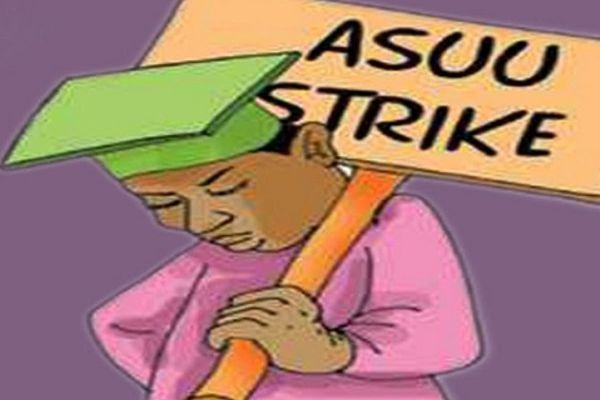ABUJA — The Federal Government has assured Nigerians that public universities will no longer be shut over labour disputes, pledging to do “everything humanly possible” to prevent further strikes by the Academic Staff Union of Universities (ASUU).
Minister of Education, Dr. Tunji Alausa, gave the assurance on Tuesday while briefing State House correspondents, saying President Bola Tinubu has given a clear mandate to keep students in school and implement transparent, data-driven reforms across the tertiary education system.
“The President has mandated us that he doesn’t want ASUU to go on strike. We are doing everything possible to ensure our students stay in school,” Alausa said.
“The last strike of about six days was not necessary. We have met almost all their demands, and we are back at the negotiation table.”
Alausa disclosed that he had earlier briefed the President on ongoing talks with ASUU and secured further concessions aimed at achieving a lasting resolution.
FG Deepens Oversight and Transparency
The minister emphasized that the government remains committed to deepening accountability and transparency in tertiary education through what he described as “evidence-based governance.”
He noted that federal institutions receive nearly 100% of their funding from the government, underscoring the importance of accurate data for effective planning and oversight.
“If you don’t have data, you are flying blind. You need data to know where the problems are, how to intervene, and how to monitor outcomes,” Alausa said.
As part of its reform drive, the government on Tuesday launched the Federal Tertiary Institution Governance and Transparency Dashboard — a digital platform requiring all federal universities, polytechnics, and colleges of education to publicly report critical data such as student enrollment, personnel and capital allocations, TETFund and NELFund interventions, as well as endowments and grants.
The platform, according to the minister, will be publicly accessible and will help restore Nigerian universities to the level of global competitiveness they enjoyed decades ago.
He added that state-owned and private tertiary institutions will also be integrated into the system in phases, with regulatory agencies like the NUC, NBTE, and NCCE ensuring compliance.
Procurement Reforms and Unified Negotiation
In a move to strengthen governance, Alausa said the Ministry has invited the Director-General of the Bureau of Public Procurement (BPP), Dr. Adebowale Adeokun, to brief heads of tertiary institutions on procurement rules and accountability expectations, signalling tighter oversight of institutional spending.
The minister also disclosed that the government has consolidated all labour negotiations within the tertiary sector under a single framework — the Alhaji Yayale Ahmed Federal Government Negotiation Committee — to prevent conflicts and duplication among different academic and non-academic unions.
“The same committee is talking to ASUU, ASUP, and COEASU. Everything is calm. I spoke to the ASUP president yesterday; there is no ultimatum from any union,” he noted.
Broader Economic Reforms
Alausa linked the ongoing education reforms to the broader national economic agenda, citing gains from the removal of petrol subsidy, foreign exchange reforms, new tax legislation, and major infrastructure investments.
He said the country’s GDP growth of 4.23% in the last quarter demonstrates that Nigeria is “back to proper governance.”
Despite lingering skepticism among lecturers and students after years of disrupted calendars and unfulfilled promises, the Federal Government insists it has learned from past mistakes and is now focused on building systems that will guarantee uninterrupted academic activity.
For now, the message from the Presidency is unequivocal: public universities must remain open — and ASUU strikes must not return.
follow us on whatsapp
https://whatsapp.com/channel/0029VaAOIUe9mrGeBhrju12b
Download our Mobile App for easy access
https://play.google.com/store/apps/details?id=com.edutvmobile.ng&hl=en
Mobile App Lite
https://play.google.com/store/apps/details?id=com.edutvng.lite
https://play.google.com/store/apps/details?id=com.edutvmobile.ng&hl=en
Follow us on Youtube
https://youtube.com/@edutvnigeria
Follow us on LinkedIn -
https://ng.linkedin.com/company/edutvnigeria
Follow us on Instagram
https://instagram.com/edutvnigeria
Follow us on Facebook
https://www.facebook.com/edutvnigeria/









